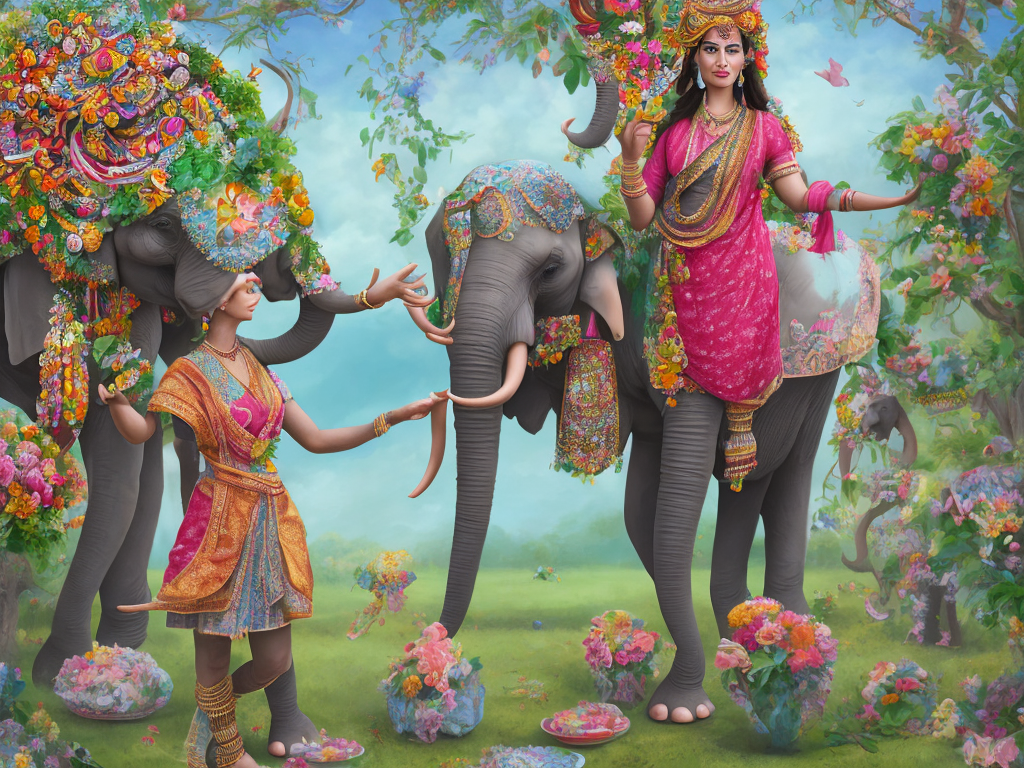
Jayanthi and Janmotsav are two significant terms frequently used in the Indian culture. These terms are prevalent during the celebration of a person's birth anniversary and have a deeper spiritual meaning. However, despite the overlapping nature of these terms, they have distinct differences that relate to their cultural significance.
Jayanthi is a term used to refer to the birth anniversary of an individual who has accomplished something significant in their lives. It is a term commonly used in the Hindu culture to celebrate the birthday of accomplished individuals such as religious leaders, scholars, and political figures. In India, the celebration of Jayanthi is prevalent as people commemorate the lives and contributions of these individuals. For instance, Swami Vivekananda, Mahatma Gandhi, and Rabindranath Tagore's Jayanthi are widely celebrated in India.
The celebration of Jayanthi involves a variety of activities that differ depending on the individual being celebrated. These activities may include speeches, prayers, cultural programs, rituals, and the offering of food, among others. During the celebrations, people not only celebrate the individual's birth anniversary but also recognize their achievements and contributions to society. This recognition serves as a tool for the preservation of the ideals and values that the individual promoted.
On the other hand, Janmotsav is a term used to describe the celebration of the birth of a deity or divine personality. Unlike Jayanthi, Janmotsav primarily relates to the Hindu religion and the worship of various gods and goddesses. The term Janmotsav is a combination of two Hindi words, ‘Janm’ meaning birth, and ‘Utsav,’ meaning celebration. For instance, Janmotsav is widely celebrated in India to mark the birth of Lord Krishna, Lord Rama, and Goddess Durga, among others.
During Janmotsav, people across India celebrate by offering prayers and special offerings to these deities. The celebration is an essential part of Hindu culture, and it aims to emphasize the importance of these deities in people's lives. For instance, the celebration of Janmotsav of Lord Rama involves the recitation of the Ramayana, a set of ancient Hindu scriptures that revolve around the life of Lord Rama.
One of the notable differences between Jayanthi and Janmotsav lies in their nature. While Jayanthi is a celebration of a person's birth anniversary, Janmotsav is a celebration of the birth of a god or a goddess. As such, Jayanthi puts more emphasis on the person's unique contributions to society than their birth anniversary. On the other hand, Janmotsav tends to be more religious and puts more emphasis on the importance of the deity in the lives of people.
Another difference between Jayanthi and Janmotsav is the scale of celebrations. Jayanthi is typically celebrated on a smaller scale than Janmotsav. This is because Jayanthi is a celebration of an individual, and as such, it tends to attract only their followers and a few individuals in society. On the other hand, Janmotsav is a celebration of the deity, which attracts a more significant number of followers and people across societies.
Additionally, Jayanthi and Janmotsav differ in the way they are celebrated. Jayanthi celebrations are typically more personalized, as individuals and their followers celebrate their birth anniversary according to their individual preferences. For instance, the followers of Mahatma Gandhi may choose to celebrate his Jayanthi by organizing peaceful rallies or cleaning up cities to emulate his principles.
On the other hand, Janmotsav is typically celebrated through traditional rituals and ceremonies that vary depending on the deity being celebrated. The celebrations aim to pay tribute and honor to the deities and the contributions they have made to society. For instance, the Janmotsav of Lord Krishna involves the performance of dances such as Raas Leela and the distribution of sweets such as Mathura Ka Peda.
In conclusion, Jayanthi and Janmotsav are essential terms used in the Indian culture to celebrate birthdays and the birth of deities, respectively. While the two terms may appear similar in the way they are celebrated, they differ significantly in their nature, scale of celebrations, and the way they are celebrated. Jayanthi is more personalized, and it emphasizes the contribution of individuals to society, whereas Janmotsav is more religious and emphasizes the importance of deities in people's lives. Understanding the difference between the two terms can help individuals appreciate the cultural significance of each celebration, and the importance of preserving our culture and traditions.
 Self-Instruct
Self-Instruct